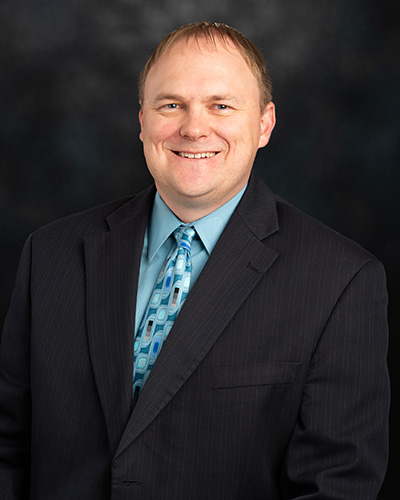
Dr. Myers is an Associate Professor of Pharmacology in the Department of Diagnostic and Biomedical Sciences at The University of Texas Health Science Center, School of Dentistry at Houston. He received his Doctorate in Pharmacy (PharmD) from the University of the Sciences in Philadelphia in 1999, and Doctorate in Philosophy (PhD) from West Virginia University in 2005. Dr. Myers completed post-doctorate fellowship training in Pharmacokinetics and Pharmacodynamics at the University of Maryland, School of Pharmacy in 2007. Prior to joining the UT Health Science Center, he practiced as a Clinical Pharmacy Research Specialist at The University of Texas, M.D. Anderson Cancer Center, and prior to that position as an Assistant Professor of Pharmaceutical Sciences at Drake University, College of Pharmacy & Health Sciences.
Dr. Myers has a passion for pharmacological education. At current, he is the Course Director for Dental Therapeutics (DENF2564) and Advanced Basic Science I (DBPG1115). He also teaches pharmacology topics in other courses, including Essentials in Medicine I/II and Dental Hygiene Pharmacology, and serves as a faculty facilitator in Clinical Applications II. Dr. Myers’ educational research strives to understand the potential associations between sleep performance and academic outcomes in dental students taking basic science coursework.
In addition to educational research, Dr. Myers has research interests spanning the fields of basic and clinical pharmacological sciences (e.g., pharmacokinetics, pharmacodynamics, pharmacogenetics, and biopharmaceutics). Several of his research activities involve collaborations with clinical trials at M.D. Anderson Cancer Center. For instance, he collaborates on a project to determine if blood levels of varenicline (Chantix), a drug approved by the FDA to assist in smoking cessation, can predict treatment outcomes (cessation), and if any genetic variations influence varenicline concentrations and outcomes.
While at M.D. Anderson Cancer Center, Dr. Myers developed a keen interest in the drug busulfan (Busulfex; Myleran), a DNA alkylating agent prescribed to patients prior to hematopoietic stem cell transplantation. Clinically, he has applied real-time pharmacokinetic modeling to inform safe and effective busulfan doses in stem cell transplant recipients. In the research laboratory, Dr. Myers is engrossed in discovering novel metabolic pathways of busulfan, novel co-interacting medications via the glutathione pathway, and determining the role of a dehydroalanine metabolite of busulfan (EdAG) in cellular injury.
Dr. Myers has a passion for implementing pharmacogenetics into patient care, a practice called personalized medicine. As a member of the Clinical Pharmacogenetics and Implementation Consortium (CPIC), he has and continues to work with groups of genetic experts to develop practical clinical guidelines that ultimately inform precision dosing of medications. He also collaborates on a clinical trial at M.D. Anderson Cancer Center to determine the influence of genetic variations of uridine 5'-diphospho-glucuronosyltransferase (UGT) enzymes on the pharmacokinetics and analgesic activity of hydromorphone (Dilaudid) in cancer patients experiencing severe pain.
Another facet of Dr. Myers’ research involves studying unknown hepatic toxification/detoxification pathways of oral carcinogens found in natural substances, such as the areca (betel) nut. Regarding the areca nut, his laboratory also characterizes the constituents in poorly regulated areca products sold in retail outlets in the Houston area.
Education
PhD | West Virginia University, Morgantown, WV
PharmD | The University of the Sciences in Philadelphia, Philadelphia, PA